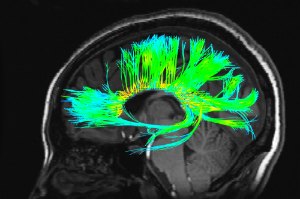
Do You Know What Helps Prevent Teen Depression?
Written by Craig Rogers, Posted on , in Section Turn For The Better
In a society that seems to place “pleasure” as the primary goal of life, we have drifted far from what I believe many are yearning to feel in their life--happiness. Certainly, all that glitters is not gold, we see the quest for “self” interest and “fulfillment” being defined by the hedonic road, believing it will take us to paradise. And yet, we are seeing 10 times the rate of depression we did a few decades ago, as well as the average age of onset of depression from 29 to that of 14 years of age. Maybe the path of self-pleasure is not where true and lasting happiness is found!
In a recent article in The Atlantic, Olga Khazan highlights the current quest for money, fun, love, and tacos, by so many who believe that the rapture of pleasures, which are only momentarily enjoyed, is not the answer. A recent psychological article on teen happiness and depression identifies that lasting and sustainable happiness is investigated as it relates to selfless acts of service and compassion towards others, as well as pursuing meaningful activities in life pursuits.
Khazan,underscores how the study, published today in the Proceedings of the National Academy of Sciences, followed 39 teenagers through the course of a year to determine if there would be a difference from teens who engaged in video games, drugs, and other self-interest pleasures, versus those who engaged in more pro-social activities like volunteering, serving others, and working hard towards goal attainment. The study was designed to identify if teens engagement with these different activities related to teen depression.
One of the dependent variables measured to determine change was performing brain scans. Teens brains were assessed in an MRI in order that researchers could assess neurological changes when teens made decisions based upon pleasure or whether to provide some type of service to others. The specific part of the brain examined is the Ventral Striatum. Depression was assessed through a self-report questionnaire designed to assess symptoms of depression. The depression scale was taken at the beginning of the project then a year later.
Can you guess the outcomes? Sure enough, those teens who engaged in more pro-social behaviors, who made decisions that characterized greater selflessness demonstrated positive neurological changes related to depression and contributed to an increase in their overall sense of well-being.
While pleasures are not to be construed as evil--not unlike money being falsely characterized as the root of all evil, it is the love of money itself that has contributed to so many social ills--pleasures do provide a benefit and can serve as a beautiful part of life. However, the love of pleasure can have the same effect as the love of money.
Lasting happiness and well-being for teens, according to the research, is more strongly anchored in prosocial behaviors. So if you want happy healthy teens, guide and encourage them to care for others by providing acts of kindness and service, cultivate feelings of gratitude for what they do have, and support them to pursue a course that equips them with the ability to increase skills and aptitude to make the world a better place. Do you think the same results exist with adults?
